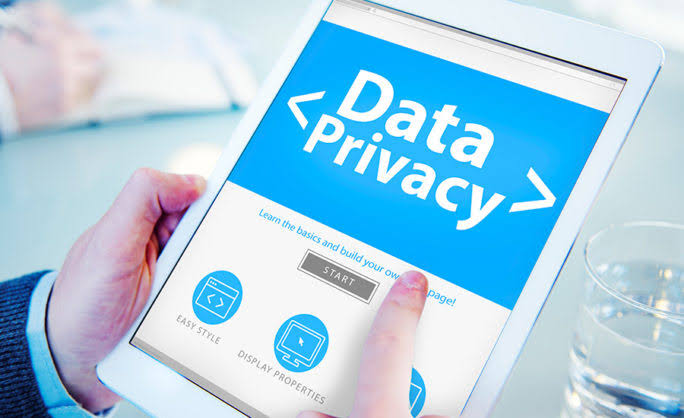In an age where digital devices are integral to both personal and professional life tablets have become cornerstone for productivity, communication and entertainment. As their use has grown so too has need for robust security measures to protect sensitive information. Tablets, like any other connected device are vulnerable to a myriad of security threats. This makes data protection a crucial aspect for users. This comprehensive analysis delves into why tablet security is essential. It also explores how it can be effectively managed to safeguard personal and corporate data.
Tablets have carved out a unique niche in the digital device market. They offer a blend of portability and functionality that appeals to a wide range of users. From business professionals who rely on them for presentations and document editing. To students who use them for study and research. Tablets serve a multitude of purposes. However, their widespread use also makes them prime targets for cyber-attacks.
One primary vulnerability of tablets is their constant connectivity. Whether through Wi-Fi Bluetooth or cellular networks, tablets are perpetually connected to internet. This increases risk of exposure to malicious entities. Public Wi-Fi networks in particular pose significant security risks. They are often unsecured allowing cybercriminals easy access to intercept data transmissions. Moreover, tablets often access sensitive information like banking details emails and corporate documents. This makes them attractive targets for hackers.
Understanding the Types of Threats
To effectively protect tablets, it is crucial to understand the various types of threats they face. These can broadly be categorized into malware, phishing attacks, and physical theft.
Malware: This encompasses a wide range of malicious software, including viruses, trojans, and spyware, designed to infiltrate and damage the device or steal data. Malware can be inadvertently downloaded through malicious apps, infected websites, or email attachments.
Phishing Attacks: Phishing involves tricking users into providing personal information, such as login credentials or financial information, by pretending to be a trustworthy entity. This can occur through emails, text messages, or fake websites that look legitimate.
Physical Theft: Tablets are portable and often carried around, making them susceptible to theft. Once stolen, all the data on the device is at risk of being accessed unless it is adequately protected.
Implementing Effective Security Measures
Given the range of threats, it is imperative to implement robust security measures to protect tablets and the data they hold. Here are some essential practices to ensure tablet security:
Strong Passwords and Biometric Authentication: Using complex passwords and enabling biometric authentication (such as fingerprint or facial recognition) can significantly enhance the security of a tablet. These measures prevent unauthorized access and ensure that even if the device is stolen, it cannot be easily unlocked.
Regular Software Updates: Keeping the tablet’s operating system and applications up to date is crucial. Software updates often include security patches that address known vulnerabilities, reducing the risk of exploitation by cybercriminals.
Installing Reliable Security Software: Anti-malware and antivirus software can detect and prevent malicious attacks. These programs can scan for threats, block suspicious activities, and remove any detected malware.
Data Encryption: Encrypting the data on a tablet ensures that even if the device is compromised, the information remains inaccessible without the decryption key. Many tablets offer built-in encryption features that can be enabled for additional security.
Secure Network Connections: Avoiding public Wi-Fi networks and using a Virtual Private Network (VPN) can protect data transmitted over the internet. A VPN encrypts the data, making it difficult for hackers to intercept and decipher it.
Educating Users: Awareness and education are key components of security. Users should be informed about the risks and trained to recognize phishing attempts and other social engineering tactics. They should also be encouraged to avoid downloading apps from untrusted sources and to scrutinize permissions requested by applications.
The Role of Businesses in Ensuring Tablet Security
For businesses, the stakes are even higher when it comes to tablet security. Tablets used in a corporate environment often contain sensitive business data, intellectual property, and access to company networks. A breach could result in significant financial losses, legal repercussions, and damage to the company’s reputation.
To mitigate these risks, businesses should implement comprehensive security policies and provide regular training to employees. This includes establishing guidelines for password management, data encryption, and the use of secure communication channels. Additionally, businesses should consider implementing Mobile Device Management (MDM) solutions. MDM allows IT departments to monitor, manage, and secure tablets used within the organization, ensuring compliance with security policies and providing the ability to remotely wipe data in case of loss or theft.
The Future of Tablet Security
As technology evolves, so do the methods used by cybercriminals. This ongoing battle requires continuous advancements in security measures. Future developments in tablet security may include more sophisticated biometric authentication methods, enhanced encryption algorithms, and AI-driven security solutions that can predict and prevent threats in real-time.
Moreover, the integration of security features at the hardware level, such as secure enclaves for storing sensitive information, could provide an additional layer of protection. Collaborative efforts between device manufacturers, software developers, and cybersecurity experts will be crucial in developing these advanced security measures.
Conclusion
The importance of tablet security and data protection cannot be overstated. With the increasing reliance on tablets for personal and professional use, safeguarding these devices against various threats is paramount. By implementing strong passwords, regular updates, reliable security software, data encryption, and secure network connections, users can significantly enhance the security of their tablets. For businesses, adopting comprehensive security policies and MDM solutions is essential to protect sensitive corporate data. As technology continues to advance, staying informed and proactive about security measures will be key to ensuring the safety and integrity of data on tablets.
